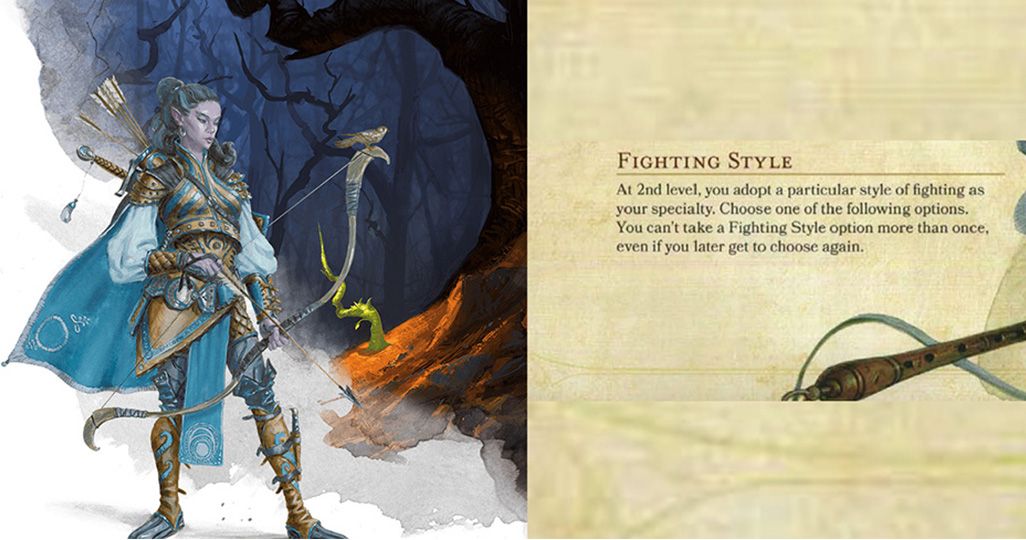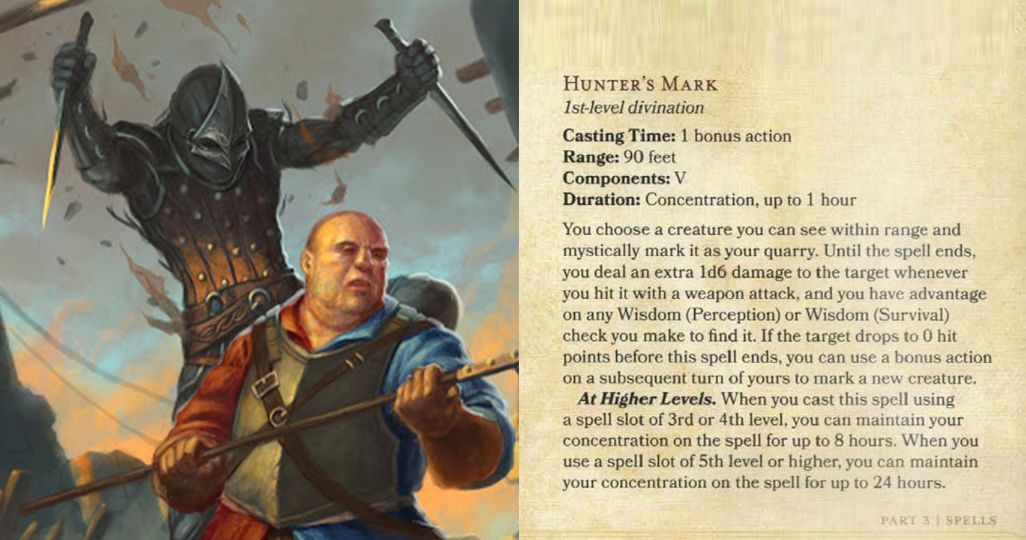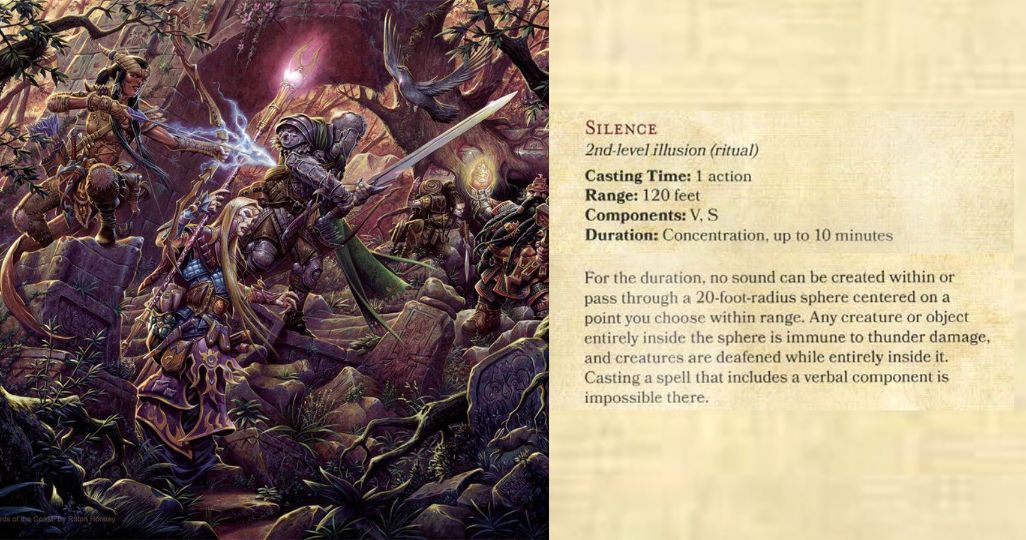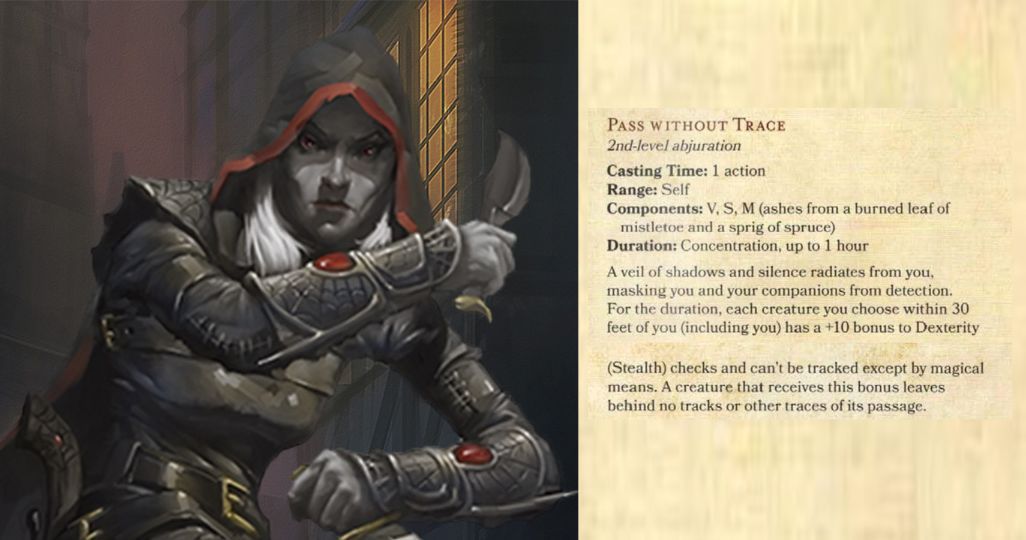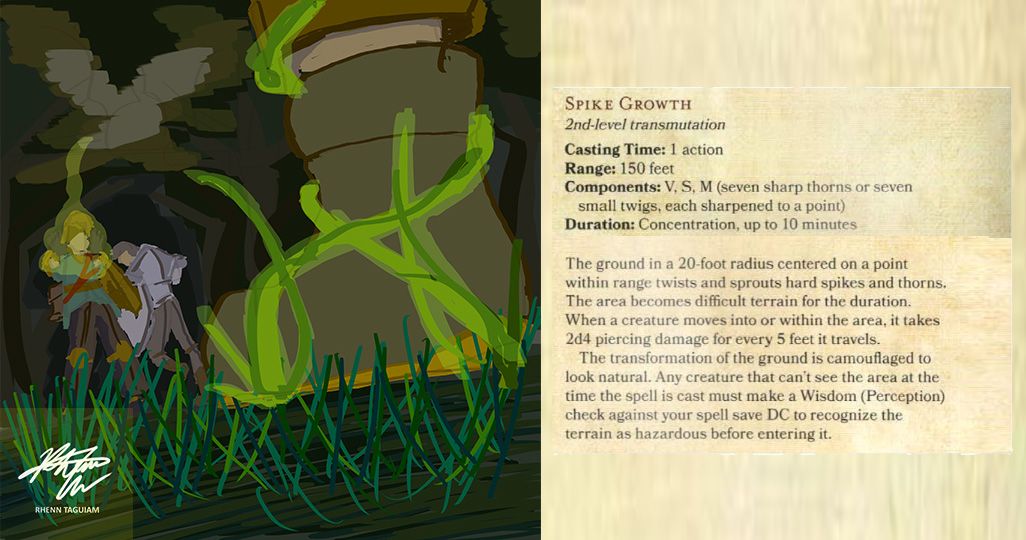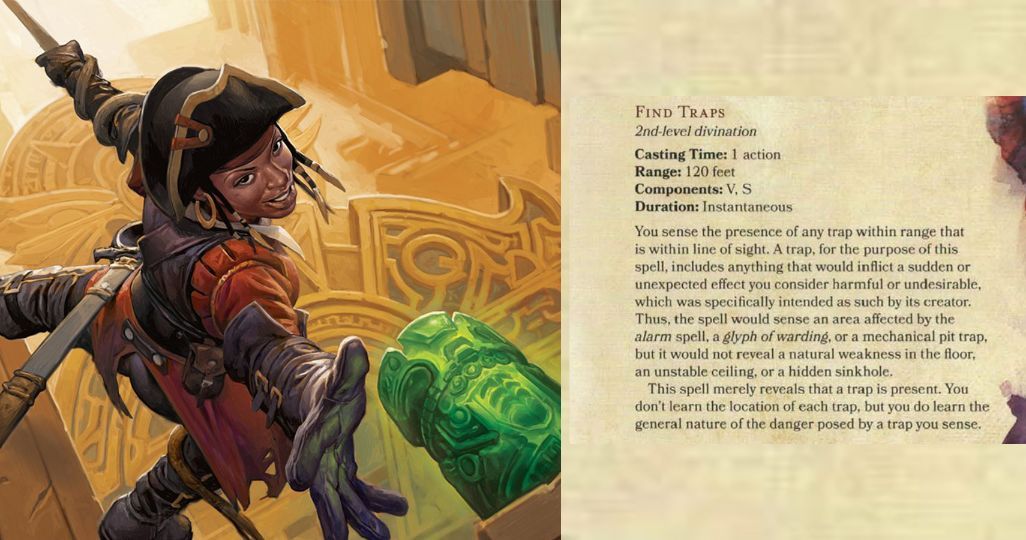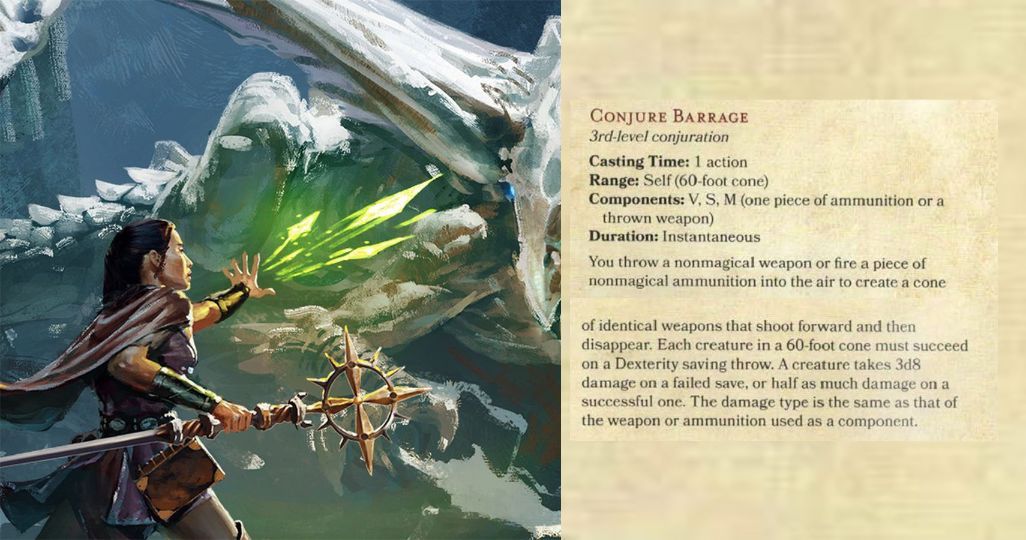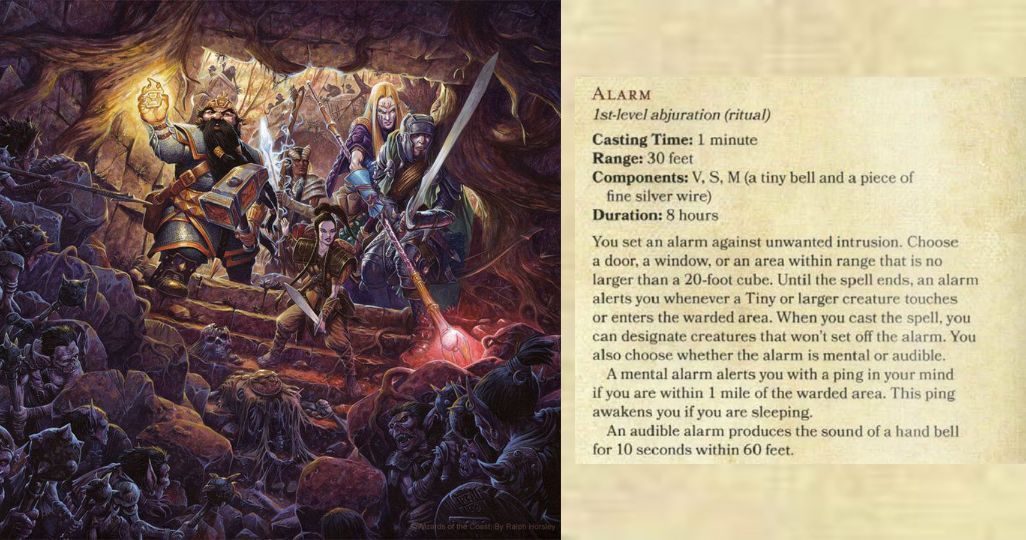Rangers remain one of the most versatile classes in Dungeons & Dragons Fifth Edition (D&D 5e). For prospective Rangers, the right build can help them find any target's weakness and eliminate them in just a few turns. All of these perks come from various abilities and spells that Rangers learn throughout the campaign.
Rangers gain access to their Spellcasting abilities as early as level two. Moreover, they also learn more class features as they level up. All this information can be daunting for any newbie, but, thankfully, this guide will sort out the best—and the worst—skills for Rangers at any party.
10 Useful: Fighting Style
Rangers get a Fighting Style like a Fighter. However, Rangers only get a Fighting Style once at level two. As such, players should choose a Fighting Style suitable for their build, as this can't be changed later down the line.
Ranged builds should get Archery, while dual-wielders should get Two-Weapon Fighting (TWF). Archery lets Rangers add a +2 to hit, which is a plus against opponents with higher AC. TWF can help you add extra damage to your off-hand attack.
9 Useful: Hunter's Mark
Players with experience handling a Ranger would always prioritize Hunter's Mark. This recommendation makes sense, as Hunter's Mark demonstrates the Ranger's ability to hunt its chosen targets.
Hunter's Mark is a first-level Divination spell that lets Rangers mark a specific target. Hitting this target deals an additional 1d6 damage, and the Ranger gets advantages on certain checks to track it. This spell lasts an hour, but using higher spell slots increases the duration of Hunter's Mark for up to a day. If an enemy tries to make a run for it, Hunter's Mark won't let that target go far.
8 Useful: Silence
For a second level Illusion spell, Silence can be very debilitating to spellcaster opponents. Having this spell can be a massive asset for parties that don't have a lot of magical defense.
Silence creates a sphere with a 20-foot radius that removes any sound inside it. This sphere effectively makes all creatures inside it deafened, and, therefore, immune to Thunder damage. However, it's most useful against spellcasters that need verbal components for most spells. Silence effectively makes casting spells with verbal components impossible.
7 Useful: Pass Without Trace
Rangers can rely on Pass Without Trace should they find themselves stuck in a rut. This second-level Abjuration spell is a great escape tool for parties facing a lot of opponents. Likewise, stealth missions become a breeze should party members wearing heavy armor accompany a Ranger in a fortified base.
Pass Without Trace masks the presence of the Ranger and their companions. They receive a whopping +10 bonus to Stealth checks, and others can only track them using magic. They leave no trace of their whereabouts, hence the name. This spell isn't very useful in battle, but it can very well help parties avoid random encounters.
6 Useful: Spike Growth
Spike Growth can give Rangers great crowd control potential considering that it's only a second-level Transmutation spell. When cast, the Ranger's chosen area will grow thorns and hard spikes around a 20-foot radius. Perhaps more amazing is Spike Growth's ability to turn that chosen area into difficult terrain, making this spell perfect against melee opponents.
Creatures inside the Spike Growth terrain will suffer 2d4 piercing damage for every five feet that they traverse. As Spike Growth transforms this area into difficult terrain, creatures traversing the area can only take half movement. This caveat means opponents trying to go to the Ranger for melee combat will already get damaged before they even fight. Likewise, this can also help Rangers and their parties run away or position themselves in the battlefield, as the difficult terrain will slow enemies down.
5 Avoid: Cure Wounds
Ideally, parties should have a healer to give them the buffs and healing necessary for prolonged battles. If players already have a healer in their party, their Rangers should avoid taking Cure Wounds as a spell. It's true that this 1st Level Evocation spell can do wonders for parties in near-death situations. However, Rangers can do more with their Spell Slots than spend it for healing.
Rangers should only pick Cure Wounds as a spell if they're in a party that needs a secondary healer. If the party's resident healer ends up being targeted often, the Ranger can perhaps use a build with spells that either restrain enemies or help the party eliminate them faster.
4 Avoid: Detect Magic
Detect Magic remains an essential part of any party's spell list. After all, the first-level Divination spell allows its caster to detect magic up to 30 feet away from them. Visible objects and creatures with magic will have a faint outline around them, and casters will learn the school of magic that emanates from them. However, while this is an extremely useful spell, Rangers shouldn't be the first casters of Detect Magic at a party.
Ideally, spellcasters like Wizards should have Detect Magic as a staple in their arsenal. Unfortunately, not all spellcasters choose Detect Magic in their initial list of learned spells. If Rangers find themselves in such a party, perhaps learning Detect Magic can be useful for their team. However, Rangers who choose to learn Detect Magic should make sure their other abilities and spells can compensate for the spell slot Detect Magic will most likely consume.
3 Avoid: Find Traps
Since D&D has "Dungeons" in its name, it's a common assumption that campaigns will inevitably lead players to dungeons—and dungeons will usually have traps. With this logic, Rangers should probably have the Find Traps spell. At first glance, this second-level Divinitation spell can be extremely useful. This spell helps its caster detect the presence of anything that constitutes a trap. That's it, though; the spell reveals the presence of the trap and the general nature of its effects, but not its location.
Rangers can invest in Find Traps if no one in the party is proficient in Investigation. Either way, a party of six can perform six separate Investigation checks, or even a group ability check, which can boost the odds of detecting traps in an area. Find Traps can shine in places that usually contain traps such as dungeons, fortresses, and ominous structures.
2 Avoid: Conjure Barrage
Archery fans would've seen this in films: an archer shoots an arrow up in the sky, only for more arrows to rain down on their enemies. 5e makes this possible for Rangers using the Conjure Barrage spell, which at first glance seems like an interesting crowd control ability. After all, the third-level Conjuration spell will duplicate a nonmagical weapon that's thrown in the air and unleash a cone of identical weapons to an area. Creatures that fail a Dex save will take 3d8 damage.
Unfortunately, the usefulness of this spell really depends on the situation. After all, two longbow attacks combined with a Hunter's Mark can deal more damage compared to this spell. Rangers can use this spell creatively, though, such as attaching bells to the arrow so its duplicates can alert the party of enemy presence in an area.
1 Avoid: Alarm
Alarm can be a great spell to use to avoid ambushes and enemies trying to infiltrate friendly territory. This first-level Abjuration spell can come quite in handy if the party has to protect a certain NPC or a magical item for a quest. However, this spell's usefulness really depends on the situation. And, given how the Ranger is built to do more fighting than spellcasting, the spell slot allocated for Alarm can be better used for a combat-oriented spell.
Moreover, as the party is very likely to be constantly moving across the campaign, Alarm only becomes useful during downtime. Unless the party acquires a base or stays put in an area, Alarm shouldn't be a Ranger's priority, and Rangers can use Alarm more effectively outside of combat They can cast the Alarm spell on areas they're assigned to protect, such as an encampment or the beginning of a path to alert them of enemy presence.

